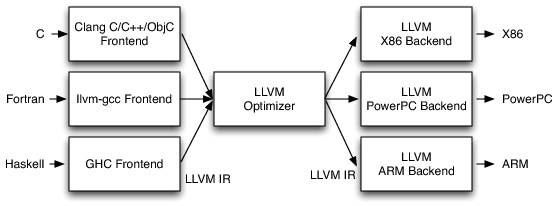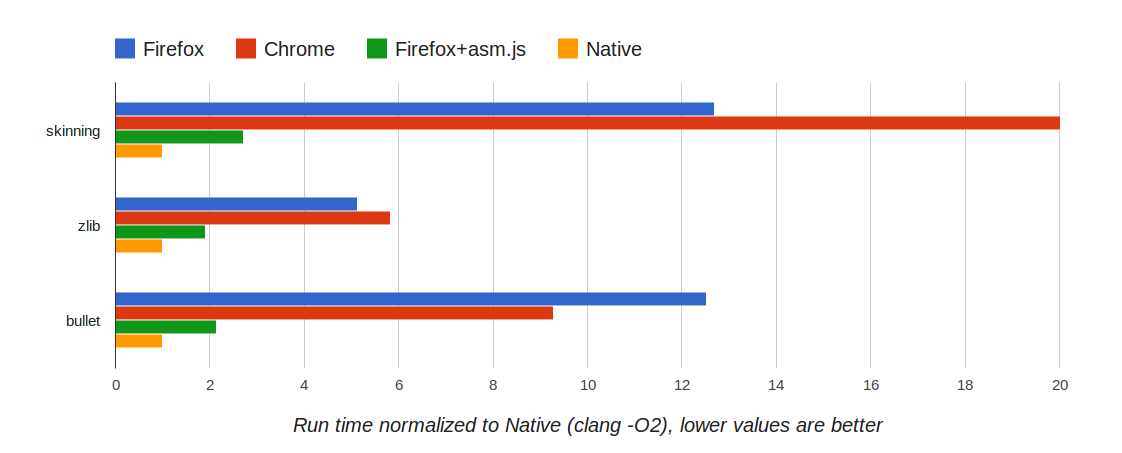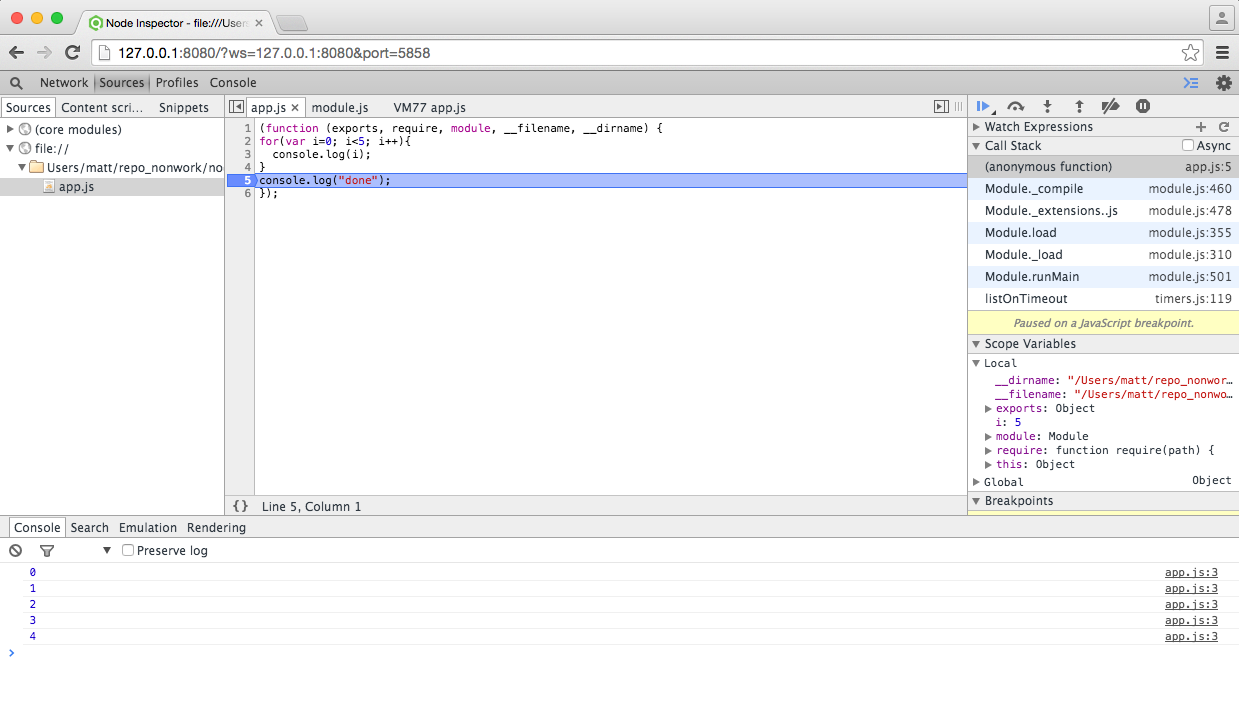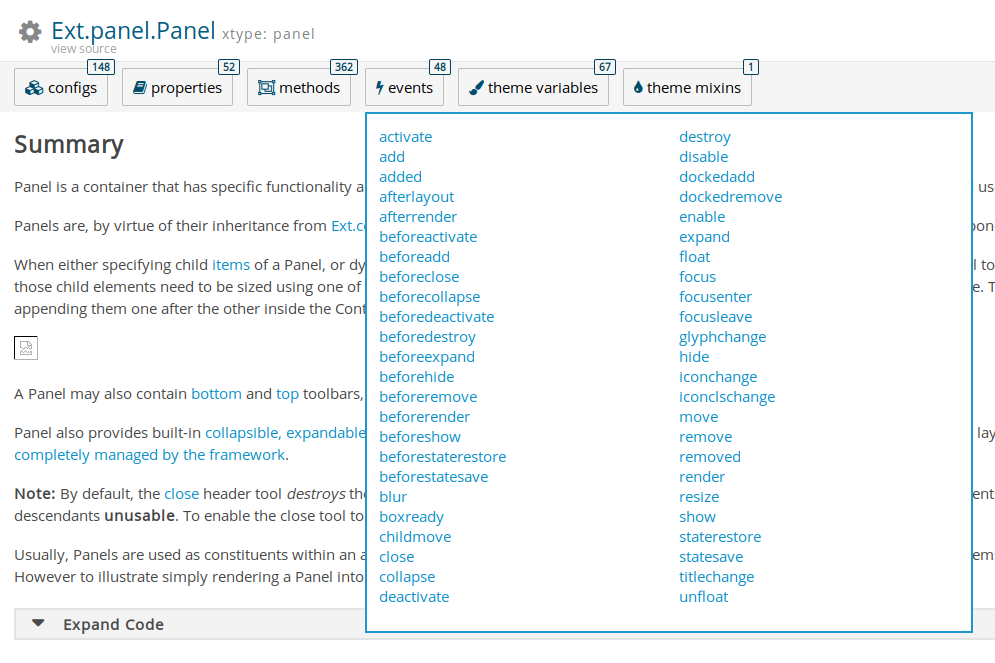ECMAScript — ассемблер будущего,
бэкенд, фронтенд и все-все-все
О своих предпочтениях
«И давно вы занимаетесь программизмом?»
- Начинал лет в 11 с C/C++ (Turbo C / C++Builder)
- Потом открыл для себя Linux, свободный софт…
- главное читать логи :)
- …LAMP (Perl/PHP), HTML и JS
- Теперь полюбил серверный JS (nodejs)
О чём доклад?
- Почему JS?
- История JavaScript
- Обзор языка, производительность
- Обзор выдумок
- (фреймворки, системы сборки и т.п)
- Немного демо
Что такое JS?
JavaScriptECMAScript
- От Java только часть названия
- Скриптота! (динамический язык)
- Объект/массив/скаляр (JSON)
- Прототипы, замыкания, колбэки, нет многопоточности
- ES — язык. А ещё есть окружение (DOM, BOM)
- Куча новых фич (ES2015-2016-2017)
- Браузерный — Chrome (V8), Firefox (SpiderMonkey) и даже IE (ChakraCore)
- Серверный — node.js (V8)
Холивар!!!
- Шутки в сторону: тема серьёзная
- Популярных динамических языков много
- можно пытаться это отрицать, но таки удобно
- Статические… хде они? Java? (C# не в счёт, винда)
- Компилируемые новые есть: D, Rust, Go, Vala, Swift
- но кто на них пишет-то?
Все хотят одного
- Типизация — не необходимость, как раньше, а лишь один из способов проверки
- что ещё можно проверять?
- Rust: borrow checker
- функциональщина: «purity» checker
- Java: checked exceptions
- При этом
- auto уже даже в C++
- тайпчекер (частично) уже даже в PHP (+ Hack)
Почему JS?
- Нейтральный C-подобный синтаксис
- Быстрый! (как вычислительно, так и для I/O)
- Событийная машина node.js — не пустой звук! (1M соединений на одном сервере)
- Всегда нужен в браузерах (а веб нынче даже 1С)
- Мощное сообщество и развитие
- Удобный пакетный менеджер npm
- Есть тайпчекеры: TypeScript, Flow, Dart…
Синтаксис
Сравнительный анализ
Perl
sub _skip_attrs { my ($tag, $attrs) = @_; $tag = lc $tag; return "<$tag>" if $tag =~ m!^/!so; my ($enclosed) = $attrs =~ m!/$!so ? ' /' : ''; $attrs = { $attrs =~ /([^\s=]+)=([^\s=\'\"]+|\"[^\"]*\"|\'[^\']*\')/gso }; my $new = {}; for (qw(name id class style title)) { $new->{$_} = $attrs->{$_} if $attrs->{$_}; } my %l = (a => 'href', blockquote => 'cite', q => 'cite'); if ($attrs->{$l{$tag}} && $attrs->{$l{$tag}} !~ /^[\"\']?javascript/iso) { $new->{$l{$tag}} = $attrs->{$l{$tag}}; } return "<$tag".join("", map { " $_=".$new->{$_} } keys %$new).$enclosed.">"; }
- Спецсимволы захватили мир
- Репутация «write-only», развитие умерло
PHP
$isExact = []; foreach ([ 'line' => 'l', 'cfo' => 'cc' ] as $k => $t) { if (!isset($specified[$k.'_id']) && !isset($specified[$k.'_id_exact']) && !isset($groups[$k]) && !isset($groups[$k.'_all'])) $isExact[] = "$posAlias.${k}_id IS NULL"; elseif ($lastgrp == $k.'all') $isExact[] = "$posAlias.${k}_id=$t.id"; } foreach ([ 'party', 'account', 'paytype' ] as $k) if (!isset($specified[$k.'_id']) && !isset($groups[$k])) $isExact[] = "$posAlias.${k}_id IS NULL"; return implode(' AND ', $isExact) ?: '1=1';
- Что за $$$$$?
- Репутация г**нокода
Python
class FileCache: def __init__(self, dir): self.dir = dir if not os.path.isdir(dir): os.mkdir(dir) def fn(self, key): key = re.sub('([^a-zA-Z0-9_\-]+)', lambda x: binascii.hexlify(x.group(1)), key) return self.dir+'/'+key def clean(self): t = time.time() for fn in os.listdir(self.dir): if t > os.stat(self.dir+'/'+fn).st_mtime: os.unlink(self.dir+'/'+fn)
- Пробелы меняют смысл?!!!!
Ruby
module Gitlab class SearchResults attr_reader :current_user, :query def objects(scope, page = nil) case scope when 'projects' projects.page(page).per(per_page) when 'issues' issues.page(page).per(per_page) when 'merge_requests' merge_requests.page(page).per(per_page) when 'milestones' milestones.page(page).per(per_page) else Kaminari.paginate_array([]).page(page).per(per_page) end end
- projects — переменная? Фигвам. Метод без аргументов.)
- чем он лучше хотя бы питона?
Go
func TestChannelStoreSave(t *testing.T) { Setup() teamId := model.NewId() o1 := model.Channel{} o1.TeamId = teamId o1.DisplayName = "Name" o1.Name = "a" + model.NewId() + "b" o1.Type = model.CHANNEL_OPEN if err := (<-store.Channel().Save(&o1)).Err; err != nil { t.Fatal("couldn't save item", err) } if err := (<-store.Channel().Save(&o1)).Err; err == nil { t.Fatal("shouldn't be able to update from save") }
- Что за смайлики := <- & *? Где мои скобочки?
Erlang
iq_handler(From, _To, #iq{type=set, lang = Lang, sub_el = #xmlel{name = Operation} = SubEl} = IQ, CC)-> ?DEBUG("carbons IQ received: ~p", [IQ]), {U, S, R} = jid:tolower(From), Result = case Operation of <<"enable">>-> ?INFO_MSG("carbons enabled for user ~s@~s/~s", [U,S,R]), enable(S,U,R,CC); <<"disable">>-> ?INFO_MSG("carbons disabled for user ~s@~s/~s", [U,S,R]), disable(S, U, R) end, case Result of ok -> ?DEBUG("carbons IQ result: ok", []), IQ#iq{type=result, sub_el=[]}; {error,_Error} -> ?ERROR_MSG("Error enabling / disabling carbons: ~p", [Result]), Txt = <<"Database failure">>, IQ#iq{type=error,sub_el = [SubEl, ?ERRT_INTERNAL_SERVER_ERROR(Lang, Txt)]} end;
- Ой-ой-ой…
- Специфичен. Классов нет, есть процессы. Но сетевой, да!
OCaml O_O
let log_client_info c sock = let buf = Buffer.create 100 in let date = BasicSocket.date_of_int (last_time ()) in Printf.bprintf buf "%-12s(%d):%d -> %-30s[%-14s %-20s] connected for %5d secs %-10s bw %5d/%-5d %-6s %2d/%-2d reqs " (Date.simple date) (nb_sockets ()) (client_num c) ( let s = c.client_name in let len = String.length s in if len > 30 then String.sub s 0 30 else s) (brand_to_string c.client_brand) (match c.client_kind with Indirect_address _ | Invalid_address _ -> "LowID" | Direct_address (ip,port) -> Printf.sprintf "%s:%d" (Ip.to_string ip) port) (last_time () - c.client_connect_time) (if c.client_rank > 0 then Printf.sprintf "rank %d" c.client_rank else "") (nwritten sock) (nread sock) (if c.client_banned then "banned" else "") c.client_requests_received c.client_requests_sent ;
- «вроде что-то древнее»
- ПОЛИЗ?!!!!
Lua
function Encoder.put(self, chunk) if self.buffersize < 2 then coroutine.yield(chunk) else if #self.buffer + #chunk > self.buffersize then local written = 0 local fbuffer = self.buffersize - #self.buffer coroutine.yield(self.buffer .. chunk:sub(written + 1, fbuffer)) written = fbuffer while #chunk - written > self.buffersize do fbuffer = written + self.buffersize coroutine.yield(chunk:sub(written + 1, fbuffer)) written = fbuffer end self.buffer = chunk:sub(written + 1) else self.buffer = self.buffer .. chunk end end end
- Для полноты картины
JS
TreeGridNode.prototype.setChildren = function(isLeaf, newChildren) { if (!this.tr) this.grid.tbody.innerHTML = ''; else { var tr = this.tr[this.tr.length-1]; while (tr.nextSibling && tr.nextSibling._node.level > this.level) this.grid.tbody.removeChild(tr.nextSibling); if (this.leaf != isLeaf) { if (isLeaf) { this.tr[0].cells[0].firstChild.className = 'collapser collapser-inactive'; removeListener(this.tr[0].cells[0].firstChild, 'click', this._getToggleHandler()); } else { this.tr[0].cells[0].firstChild.className = this.collapsed ? 'collapser collapser-collapsed' : 'collapser collapser-expanded'; addListener(this.tr[0].cells[0].firstChild, 'click', this._getToggleHandler()); } } } this.leaf = isLeaf; this.children = []; this.childrenByKey = {}; this.addChildren(newChildren); }
Синтаксис JS
Имхо вполне нейтральненько.
(неприятных рефлексов вызывать не должен)
История JS
- 1995—2004: дремучий лес с партизанами
- 2004—2008: появление AJAX
- 2008+: шустрота и современный период
Дремучий период
1995—1997
- Создание и начальная стандартизация
- DOM ещё нет, только «DOM level 0»
- document.forms, document.images
1998
- DOM level 1 (DHTML)
- document.getElementById, все элементы — объекты
2000
- DOM level 2
- События и более-менее современный вид объектов
- pre-AJAX: JSONP, невидимый iframe
Появление AJAX
2004
- Firefox 1.0
- XmlHttpRequest
- Первое SPA — Gmail, впервые упомянут термин «AJAX»
- Начало конца дремучего периода JS, как языка для всплывающих баннеров
Совместимость браузеров ещё плохая, так что
- 2006 — jQuery
Современное развитие
- 2008 — Google V8
- 2009 — IE8 (M$ очнулся)
- 2009 — node.js (2011 — v0.6)
- 2011 — начало работы над ES6
- 2012 — Angular 1.0
- 2013 — React
- Где-то тут же изоморфность
- 2015 — ES6 принят
Производительность
На ЛОРе до сих пор шутят, что «Java тормозит», а что ж тогда JS?
- А ничего — и Java быстрая, и он быстрый. Мамонты видать шутят
- из скриптоты node.js быстрее всех
- Но он же интерпретируемый?
- НЕТ! Интерпретируемых языков уже вообще нет.
- Ну, разве что bash…
Вычислительный бенчмарк
- https://github.com/famzah/langs-performance, время на 10 итераций (i386)
- C++ (g++ 6.1.1) -O2 = 0.92s
- java8 = 0.92s; java6 = 1s (ручные массивы)
- PyPy (tracing jit) = 1.25s
- Rust 1.12 = 0.85s! Go 1.7 = 1.14s
- node.js 4.6 = 1.35s + баг; nodejs 0.10 = 2.6s
- PHP 7 = 6.7s
- Ruby 2.3 = 14.3s, Python 3.5 = 17s, 2.7 = 20s
- Perl = 24s
- PHP 5.6 = 42.5s :))))) ахаха, прекрати
Разница между 64 и 32 бит: i386
Разница между 64 и 32 бит: amd64
Почему V8 такой быстрый?
Ключевые слова о том, как это всё устроено
- Какой бывает JIT?
- method-based jit (JVM)
- tracing jit (PyPy, TraceMonkey)
- Девиртуализация
- Ускорение поиска в хеше (Lua)
- OSR (On-Stack Replace)
Отступление: PyPy
LLVM
LLVM (http://llvm.org), ранее «Low Level Virtual Machine»
- Набор библиотек для построения компиляторов/интерпретаторов
- Модульный
- исходник → фронтенд (ЯП) → LLVM IR (SSA)
- IR → оптимизатор LLVM → IR
- IR → бэкенд → машинный код
- А также сами компиляторы (в первую очередь C/C++/ObjC: Clang)
- На LLVM сделаны компилятор шейдеров Radeon и OpenCL
SSA
Пример LLVM IR:
store i32 1, i32* %e, align 4 br label %4 ; <label>:4 ; preds = %29, %0 %5 = load i32* %a, align 4 %6 = load i32* %b, align 4 %7 = add nsw i32 %5, %6 store i32 %7, i32* %c, align 4 %8 = load i32* %c, align 4 %9 = load i32* %a, align 4 %10 = sub nsw i32 %8, %9 store i32 %10, i32* %d, align 4 %11 = load i32* %d, align 4 %12 = icmp ne i32 %11, 0 br i1 %12, label %13, label %14 ; <label>:13 ; preds = %4 br label %20
V8 JIT
- Первый раз функции запускаются в LLInt
- 6 вызовов либо 100 повторов строки
- → OSR в Baseline JIT
- C*66 вызовов либо C*1000 повторов строки
- → OSR в DFG JIT
- C ~ 1, больше для больших функций
- Нарушение type guard в DFG
- → OSR обратно в Baseline JIT
- C*6666 вызовов либо C*100000 повторов строки
- → OSR в LLVM/B3 JIT
Мало?
function strlen(ptr) { // calculate length of C string ptr = ptr|0; var curr = 0; curr = ptr; while (MEM8[curr]|0 != 0) { curr = (curr + 1)|0; } return (curr - ptr)|0; }
Производительность — итого
- Итого, V8 — «смешанный» JIT
- В Firefox — тоже всё шустро
- Чакра Наделлы тоже очень похожа на V8
- Постоянная битва :) https://arewefastyet.com/
- Но язык — ещё не всё! Ещё есть:
- В браузере — DOM (медленный в старых Firefox при формально быстром JS)
- На сервере — ввод/вывод
I/O bound, а не CPU bound
- Типичные веб- и бизнес- приложения сетевые
- «получить из одного места (базы, кэша) и переложить в другое / отдать клиенту»
- nb: все наши веб-фреймворки ни фига не делают :)
- nb: иначе PHP-сайтики были бы неюзабельны
- Иногда — очень сетевые (C10K / C1M)
- чисто русский термин «хайлоад»
- 10gbit ethernet уже среди нас
- ⇒ что же делать?..
Событийные машины!
("event loop")
Как вообще обрабатываются соединения клиентов?
Все писали сетевой сервер на C? :)
Обычный (блокирующий) ввод/вывод:
- forking: socket(), accept(), fork(), дочерний процесс работает с клиентом
- threading: socket(), accept(), создаём поток, дочерний работает с клиентом
- prefork / thread pool: создаём N процессов/потоков заранее
- Потоки и процессы — объекты ОС
- разница только в изоляции памяти
- 1000 потоков — уже тяжело (context switch)
- «Проблема C10K» (обработать 10000 соединений на 1 сервере)
Событийная машина
Неблокирующий ввод/вывод:
- socket()
- select() / poll() / epoll / kqueue
- говорим ОС: «разбуди, когда в любом из сокетов что-то произойдёт»
- сокет пока один (слушающий)
- новое соединение => добавляем в select и спим дальше
- кто-то прислал запрос => читаем, быстро обрабатываем, отвечаем, спим дальше
- всё в один поток (или в несколько по числу ядер CPU)
Так работает Nginx…
А если пойти дальше?
Кроме HTTP-запросов клиентов ещё есть:
- СУБД/кэши
- Файлы
- REST сервисы
- Websocket’ы
- Сетевые серверы (IMAP?)
Почему бы всё это не обрабатывать в одном цикле?
⇒ Это и будет «событийная машина»
Событийные машины
Почти везде опциональная сущность:
- Python: Twisted
- более-менее популярен
- Java: Vert.x, Webbit
- мало кто использует, ынтырпрайз же, а тут хипстота какая-то
- да, внутри wildfly тоже event loop — но только для HTTP
- в JEE — потоки во все поля
- PHP: kak.serpom.po.yaitsam/phpdaemon
- почти никто не использует
- Go: goroutine, но не совсем
- Lua+nginx: ngx_lua/cosocket
- Механизмы разные в разных ОС ⇒ libevent, libev
Событийная машина node.js
- Отличительная черта: вообще нет блокирующего I/O
- тут-то колбэки JS и становятся преимуществом
- Реально работает: тест 1M соединений на 1 сервере
- Кроме node.js такое есть только в Erlang
- 1M соединений переваривает даже успешнее — на продакшне у WhatsApp
- и gc быстрый (кучи отдельные)
- но… erlang. свои минусы и начинает хотеться монад
- Million RPS Battle
Можно писать и на префорке
Но…
«Хорошо быть девочкой в розовом пальто,
можно и не девочкой, но уже не то»
Обзор языка
и приколы
Типы данных
Типы данных (что может вернуть typeof):
- null (не NULL, всё регистрозависимо)
- undefined ("не определено")
- number: 1, −100500.05, NaN
- boolean: true, false
- string: "hello1", 'hello2' (всегда Unicode)
- symbol — для «скрытых полей» (ES6)
- всё остальное — object
- хеш — объект дефолтного типа: { key: "value" }
- массив — разновидность объекта (класс Array): [ "value1", 2, 3, "value3" ]
- функции — тоже объекты, их typeof = function
Переменные
var a = 123;
Новый синтаксис ES6: let/const.
let a = 123; const b = 'hello';
- var локальны в рамках функции или Global Scope (в браузере — window)
- let и const локальны, как и положено, в рамках блока
Функции
Функции — объекты первого класса в JS.
function f(arg) { return arg; } var f = function(a) { return a*a; };
Новый синтаксис ES6: arrow functions
var f = a => a*a; var g = (a, b) => a*b;
Замыкания
Функции в JS являются замыканиями («замыкаются» на текущую область видимости):
function a(arg) { var sum = 0; var f = function(x) { sum += x; }; var g = function() { return sum; }; return [ f, g ]; }
Вызывать функцию можно с любым числом аргументов, пропущенные будут undefined, лишние — в arguments.
function a() { console.log(arguments[1]); // "abc" } a(1, "abc", 3, 4);
Прототипы (голый/старый JS)
function TreeGrid() { // конструктор. тут есть this } TreeGrid.prototype.method = function() { // метод класса. тут есть this console.log(this); } var obj = new TreeGrid(); obj.method();
Прототипы
(Очень простая альтернатива классам)
- Объекты «создаются из функций»
- У каждого объекта есть прототип
- Прототип — тоже объект, в нём функции и «свойства по умолчанию»
- У прототипа может быть свой прототип ⇒ наследование
- object.__proto__ — прототип этого объекта (класс, по сути)
- function.prototype — прототип, создаваемый этой функцией как конструктором
Наследование (голый JS)
Для наследования в prototype нужно присвоить объект, __proto__ которого ссылается на базовый класс.
function CalendarGrid() { TreeGrid.call(this, arguments); // "super()" } CalendarGrid.prototype = Object.create(TreeGrid.prototype); CalendarGrid.prototype.constructor = CalendarGrid;
this
- this передаётся отдельно, как «контекст вызова»
- this можно «подменить» через function.apply(obj, arguments) / function.call(obj, arg1, arg2, …)
- обычные функции/замыкания не помнят this (!)
- arrow functions помнят this
- this можно «запомнить» через function.bind() (IE9+ / FF4+)
- также через function.bind() можно сделать карринг
- (ну или явно создав замыкание)
this — примеры
var obj = new TreeGrid(); obj.method(); // this = obj var f = obj.method; f(); // this = window f.apply(obj); // this снова = obj f = obj.method.bind(obj); f(); // f привязана к obj (this = obj) f = obj.method.bind(obj, "hello"); // карринг f("arg2"); // эквивалентно obj.method("hello", "arg2"); f = obj.method; f = function() { return f.apply(obj, arguments); } f(); // то же самое вручную
this и замыкания
TreeGrid.prototype.method = (arg1, arg2) => { // Так делать нельзя, this всегда = контексту, в котором описан метод (обычно window) console.log(this); }; TreeGrid.prototype.setListener = function() { // Так делать нельзя, this будет = контексту вызова (кликнутому HTML-элементу) this.table.addEventListener('click', this.handleClick); // И так тоже делать нельзя this.table.addEventListener('click', function(event) { this.handleClick(event); }); // А вот так можно (оп-па!) this.table.addEventListener('click', (event) => this.handleClick(event)); // Ну и вот так тоже можно var self = this; this.table.addEventListener('click', function(event) { self.handleClick(event); }); };
Стандартные конструкции
- if () {} else if () {} else {} (тело можно однострочное)
- C-подобный for: for (var i = 0; i < 100; i++) {}
- while () {}
- do {} while ()
- break, continue
- C-подобный switch: switch (x) { case 1: case 2: break; default: alert('x'); }
- try { throw 'x'; } catch(e) {} finally {}
Интересные конструкции
- a == b (мягкое сравнение) и a === b (точное сравнение)
- "" == false, 0 == false, "1" == true, 1 == true, "5" == 5, null == undefined
- regexp literals: var re = /<html[^<>]*>/i;
- break label, continue label
- Цикл по ключам: for (var i in obj) {}
- Цикл по значениям (ES6): for (var i of obj) {}
function a(a1, a2) { label: for (var i of a1) for (var j of a2) if (!a2[j]) continue label; }
Приколы: приведение типов
Приколов в JS немного, но они есть.
// "+" переопределён для строк console.log("100"+1 == "1001"); console.log("100"-1 == 99); // можно приводить к числу через a-0 или 1*a // в ключах хеша true, false, null и undefined превращаются // в строки "true", "false", "null" и "undefined" // имхо, в PHP (true="1", false="", null="") сделано логичней var a = {}; a[false] = 123; console.log(a["false"] == 123);
Приколы: var
// var локальны в функциях! function f() { for (var i = 0; i < 100; i++) { // через 0.5сек 100 раз напечатает "100" setTimeout(function() { console.log(i); }, 500); } } // и определяются как будто в начале! var a = 42; function foo() { alert(typeof a); var a = 10; } foo(); // --> не 42, а undefined!
Приколы: неоднозначный разбор
// эта функция, увы, вернёт undefined ({} станет блоком, а key: меткой) // хеши начинать строго с той же строки! function fn() { return { key: "value" }; } // (function() {})() - определение + вызов функции, типично, чтобы не засорять контекст // точки с запятой опциональны, но лучше их ставить. иначе: A.prototype.m = function() { } /* вот тут нужна ; */ (function() { B.prototype.m = ... })(); // Эквивалентно A.prototype.m = ( ( function(){} ) ( function() { B.prototype.m = ... } ) )();
ES6
Он же ES2015. А также ES2016, ES2017
Фичи ES6
Уже сказал про:
- let/const
- arrow functions
- for .. of
Вычислимые свойства объектов
ES6
var b = "key"; var a = { [b+"_value"]: "v2" }; // выражение в []
ES5
var b = "key2"; var a = { key: "value" }; // ключи - только литералы, можно без кавычек a[b] = 'v2'; // динамические ключи только так
Destructuring
«Деструктивное присваивание»
var obj = { key: 'abc', value: [ 1, 2 ] }; var { key: k, value: [ a, b ], other: o = 3 } = obj; // 3 - значение по умолчанию // можно в параметрах функции! [ [ 'a', 1 ], [ 'b', 2 ], [ 'c', 3 ] ] .reduce(function(obj, [ k, v ]) { obj[k] = v; return obj; }, {});
Оператор распаковки
function f(...args) {} f(...iterable); // Кстати, в ES5 нельзя сделать apply конструктору. А тут: new Object(...args); // Распаковка массива let arr = [ ...iterable, 4, 5, 6 ]; // слияние объектов. у каждого фреймфорка было своё - $.extend, Ext.extend, Object.assign let merge_obj = { ...obj1, ...obj2, key: "value" }; // Распаковка в массив [ a, b, ...other ] = [ 1, 2, 3, 4, 5 ];
Упрощённые названия ключей
ES6
obj = { x, y, a() { return 'abc'; } };
ES5
obj = { x: x, y: y, a: function a() { return 'abc'; } };
Классы (!)
«Наконец-то», скажете вы.
class Shape { constructor (id, x, y) { this.id = id; this.move(x, y); } move (x, y) { this.x = x; this.y = y; } }
Наследование и property
class Rectangle extends Shape { constructor (id, x, y, width, height) { super(id, x, y); this._width = width; this._height = height; } static default() { return new Rectangle("default", 0, 0, 100, 200); } set width(width) { this._width = width; } get width() { return this._width; } get area() { return this._width*this._height; } }
Нюанс: IE8+, так как при трансляции в ES5 требуют Object.defineProperty().
Генераторы
Функции, из которых можно выйти и вернуться. Пожалуй, самая крутая из всех доработок!
function* a() { try { var v = yield 1; if (v < 0) yield 2; else yield 3; } catch (e) { yield "error"; } return "final"; } var b = a(); // объект GeneratorFunction. функция ещё не начала выполняться b.next(); // вернёт { value: 1, done: false } b.next(-5); // передаст -5 внутрь генератора. и вернёт { value: 2, done: false } b.throw(new Error("x")); // передаст исключение внутрь генератора. и вернёт { value: "error", done: false} b.next(); // вернёт { value: "final", done: true }
Чем генераторы круты?
Они дают убрать лестницу колбэков! Пример лестницы (node-postgres):
const pg = require('pg'); function makeQueries(callback) { var client = new pg.Client(); client.connect(function(err) { if (err) throw err; client.query('SELECT $1::text as name', ['brianc'], function (err, result) { if (err) throw err; client.end(function (err) { if (err) throw err; callback(result); }); }); }); } makeQueries(function(result) { console.log(result.rows[0]); });
А теперь с генераторами
Генератор можно приостановить. Пишем обёртку и получаем coroutine:
const gen = require('gen-thread'); const pg = require('pg'); function* makeQueries() { var client = new pg.Client(); // yield подождёт, пока не выполнится автоматически созданный колбэк gen.ef() yield client.connect(gen.ef()); var result = (yield client.query('SELECT $1::text as name', ['brianc'], gen.ef()))[0]; yield client.end(gen.ef()); return result; } gen.run(makeQueries(), function(result) { console.log(result.rows[0]); });
Промисы и async/await
То же, но стандартно — делается через промисы и async/await.
function sleep(millis) { return new Promise(function(resolve, reject) { setTimeout(resolve, millis); }); } async function f() { await sleep(500); await sleep(1000); } // эквивалентно цепочке промисов: function f() { return sleep(500).then(result => sleep(1000)); }
Это уже не ES6 (2015), а 2016-2017; но Babel всё равно их поддерживает (и транслирует в генераторы).
Поддержка Promise
API с колбэками надо оборачивать. Это нетрудно, но надо знать, куда ставить колбэк:
function wrap(fn, ...args) { return new Promise(function(resolve, reject) { try { fn(resolve, ...args); } catch (e) { reject(e); } }); } async function test() { await wrap(setTimeout, 500); }
Нюансы с исключениями
Нюанс 1: Promise'ы nodejs глотают исключения
Решение — Bluebird, он бросает Unhandled rejection error
Нюанс 2: У асинхронных исключений нет вменяемого стека.
Стеки в духе:
at Connection.parseE (node_modules/pg/lib/connection.js:554:11)
at Connection.parseMessage (node_modules/pg/lib/connection.js:381:17)
at Socket.<anonymous> (node_modules/pg/lib/connection.js:117:22)
at emitOne (events.js:77:13)
at Socket.emit (events.js:169:7)
at readableAddChunk (_stream_readable.js:146:16)
at Socket.Readable.push (_stream_readable.js:110:10)
at TCP.onread (net.js:523:20)
Решение — опять-таки Bluebird + Promise.config({ longStackTraces: true }).
gen-thread
- Ну, или забить пока на промисы
- Юзать генераторы и мой gen-thread (в промисы он тоже умеет)
yield gen.p(<PROMISE>);
Но в итоге, конечно, все перейдут на Promise.
Модули ES6
// lib/math.js export function sum (x, y) { return x + y }; export var pi = 3.141593; // lib/mathplusplus.js export * from "lib/math"; export var e = 2.71828182846; export default (x) => Math.exp(x); // someApp.js import exp, { pi, e } from "lib/mathplusplus"; console.log("e^{π} = " + exp(pi));
Оговорка: чёткой уверенности, что это лучше CommonJS, у меня нет. Но гибче, да.
Template strings
PHP-подобная строковая интерполяция.
let name = "John"; `Hello, ${name}`;
Кастомная интерполяция (для DSL, видимо):
get`http://example.com/foo?bar=${bar + baz}&quux=${quux}`; // эквивалентно: get([ "http://example.com/foo?bar=", "&quux=", "" ], bar + baz, quux);
Proxy
let target = { foo: "Welcome, foo" }; let proxy = new Proxy(target, { get (receiver, name) { return name in receiver ? receiver[name] : `Hello, ${name}`; } }); proxy.foo === "Welcome, foo"; proxy.world === "Hello, world";
Функции, локальные в блоках
(Block-scoped functions)
{ function foo () { return 1 } foo() === 1 { function foo () { return 2 } foo() === 2 } foo() === 1 }
Итераторы для for .. of
let fibonacci = { [Symbol.iterator]() { let pre = 0, cur = 1; return { next() { [ pre, cur ] = [ cur, pre + cur ]; return { done: false, value: cur }; } }; } } for (let n of fibonacci) { if (n > 1000) break; console.log(n); }
Обзор инструментов
- Пакетные менеджеры
- Трансляторы
- Сборка, преобразования и минификация
- Отладка, профилировка
- Редакторы, IDE
Системы модулей
- AMD (RequireJS): Asynchronous Module Definition
- CommonJS (node.js)
- UMD (AMD+CommonJS, поддерживается и там, и там)
- Модули ES6 (уже рассказал)
Наиболее актуальны CommonJS и ES6.
CommonJS
ИМХО — самый краткий и удобный синтаксис.
const pg = require('pg'); const gen = require('gen-thread'); module.exports.method = function() { /*...*/ }; // или даже: module.exports = MyClass; function MyClass() { } /*...*/
AMD
define(['jquery', 'underscore'], function ($, _) { // methods function a(){}; // private because it's not returned (see below) function b(){}; // public because it's returned function c(){}; // public because it's returned // exposed public methods return { b: b, c: c } });
UMD
(function (root, factory) { if (typeof define === 'function' && define.amd) define(['jquery', 'underscore'], factory); else if (typeof exports === 'object') module.exports = factory(require('jquery'), require('underscore')); else root.returnExports = factory(root.jQuery, root._); }(this, function ($, _) { function a(){}; // private because it's not returned (see below) function b(){}; // public because it's returned function c(){}; // public because it's returned return { b: b, c: c } }));
Пакетный менеджер NPM
- Использует систему модулей CommonJS
- Ставит зависимости рекурсивно (node_modules/module1/node_modules/module2/…)
- Можно их упростить: npm dedup
Пользоваться им не просто, а очень просто:
- Установить модуль: npm install [-g] [--save] [--save-dev] module
- Создать package.json для проекта: npm init
- Зарегистрироваться/залогиниться: npm login
- Опубликовать свой модуль: npm publish
Самих модулей столько, что аж страшно.
Bower
- Ещё один пакетный менеджер
- Ставится из npm O_o
- Команды примерно те же: install, init… те же semver’ы
- Основные отличия — AMD и плоское дерево зависимостей…
- то есть как будто вы просто сказали npm dedup
- только свалится, если что-то несовместимо по semver
- ⇒ Нафиг-нафиг.
Transpiler: Babel/Bublé
Как писать на ES6, если он не везде поддерживается?
Ответ — Babel!
- REPL: https://babeljs.io/repl/
- Командная строка: npm install babel-cli (babel-node)
- browserify: babelify
Трансляторы
В JS транслируют всё, что можно и нельзя
- List of languages that compile to JS
- Тайпчекеры: TypeScript, Flow, Dart (язык)
- Kotlin, Ceylon, Scala.js, ClojureScript
- Непосредственно Java: TeaVM
- C++ (O_O): Emscripten (LLVM → JS), Mandreel
- Python: Pyjamas, Transcrypt; Ruby: Opal
- OCaml: Ocsigen/Bucklescript
- Haskell: ghcjs, haste
- И много чего ещё
Сборка, упаковка и минификация
Актуальное:
Чуть старее
IDE, редакторы, отладка
- Netbeans
- отладчик встроен
- (!) умеет живое обновление кода при отладке
- Atom от GitHub
- сам написан на node.js + webkit (Electron)
- напоминает Sublime
- модульный; отладчик — отдельный пакет
- Visual Studio Code
- мелкий и мягкий форк Atom’а
- встроен отладчик и поддержка typescript и C#
Отладка из консоли
nodejs debug app.js; Есть REPL
for (var i = 0; i < 5; i++) { debugger; // брейкпоинт console.log(i); } console.log("done");
Отладка из node-inspector
$ npm install -g node-inspector; node-debug app.js
Node Inspector is now available from http://127.0.0.1:8080/?ws=127.0.0.1:8080&port=5858 Debugging `app.js` Debugger listening on port 5858
Браузерная часть
Ну, тут проблем нет совсем
- F12 даже в IE
- watchify
- есть фокусы с live reload (react/redux)
- chrome + netbeans connector
Профилировка
- node --prof, node --prof-process
- Профилировка памяти: heapdump
- Flamegraph: 0x анимация

- Ещё заметки
Тестирование
Тайпчекеры: TypeScript, Flow
В целом очень похожи.
- У Flow лучше вывод типов
- У TypeScript есть public/private/protected
- У Flow есть Nullable типы (и он автоматически проверяет на null)
- TypeScript — надмножество JS
- Flow — подмножество JS
TS null
function foo(num: number) { if (num > 10) { return 'cool'; } }
// cool const result: string = foo(100); console.log(result.toString());
// still cool? console.log(foo(1).toString()); // error at runtime: "Cannot read property 'toString' of undefined"
Flow null
function foo(num: number) { if (num > 10) return 'cool'; } // error: call of method `toString`. // Method cannot be called on possibly null value console.log(foo(100).toString()); // error: return undefined. This type is incompatible with string function foo(num: number): string { if (num > 10) return 'cool'; }
TS vs Flow: generics
class Animal { name: string; constructor(name: string) { this.name = name; } } class Dog extends Animal { // just to make this different from cat goodBoyFactor: number; } class Cat extends Animal { purrFactor: number; }
TS vs Flow: присваивание элементов
OK в обоих
let cats: Array<Cat> = []; // только коты let animals: Array<Animal> = []; // только животные // неа, не кот cats.push(10); // неа, не кот cats.push(new Animal('Fido')); // круто, кот cats.push(new Cat('Purry')); // круто, кот - тоже животное animals.push(new Cat('Purry'));
TS vs Flow: присваивание коллекций
// error TS2322: Type 'Animal[]' is not assignable to type 'Cat[]'. // Type 'Animal' is not assignable to type 'Cat'. // Property 'purrFactor' is missing in type 'Animal'. //cats = animals; // во Flow не пройдёт // опа, в TS работает. но теперь animals небезопасны animals = cats; // потому что вот это тоже проходит без ошибки animals.push(new Dog('Brutus')); animals.push(new Animal('Twinky')); // упс cats.forEach(cat => console.log(`Cat: ${cat.name}`)); // Cat: Purry // Cat: Brutus // Cat: Twinky
Обзор фреймворков
- Клиентские фреймворки «старые»
- Клиентские фреймворки «новые»
- Попытки мобильной разработки
- Попытки игровых фреймворков
«Старые»
Заслуживают упоминания:
- jQuery (фиг сдохнет, а надо бы)
- ExtJS (тоже фиг сдохнет)
- R.I.P: Yahoo UI, PrototypeJS
- По-моему, сдыхает: Dojo
jQuery
«Меня зовут Мистер Свинья!»
Если скриптота — рас***дяйство, то jQuery — ВЕРХ рас***дяйства
Ибо РАСПОЛАГАЕТ к плохому коду:
- Всё в кучу: объект-бог с кучей хелперов $ и такие же модули (например, DataTables)
- $.extend(), $.ajax(), $("<html>"), $(".class")
- Селекторы / операции над множествами: $(".class").each(e => $(e).hide())
- если элементов не найдётся, no problem, ничего не сдохнет
- Страшные контроллеры, гвоздями прибитые к UI
- Отсутствие возможностей оптимизации при динамической сборке UI
- Пример — WikiEditor
ExtJS
- Desktop-like фреймворк, умеет кучу всего
- Фундаментально тормозноват
- Со стилизацией большие трудности
- Ну хоть тема в ExtJS >= 4 стала норм, можно смотреть без рвотных позывов
- По моему опыту — писать на нём НЕ проще и НЕ быстрее, чем на HTML+JS
- Data binding есть, но ограниченный — только свойств (а не иерархии) компонентов
«Новые» (компонентные)
- Data binding
-
Knockout, Ember, Backbone - упомянем для истории; неактуальны
- AngularJS 1, 2
-
- Virtual DOM
- React
И те, и другие — по сути, решают задачу шаблонизации на JS.
AngularJS 1
- Dirty checking
- Все биндинги 2-way
- Поэтому медленный
- Есть компоненты («директивы») и контроллеры
- На этом уже можно писать
Пример
<div ng-controller="LoanCalculator">
<div>
Дата выдачи: <input name="" type="text" ng-model="props.start" /><br />
Сумма: <input name="" type="text" ng-model="props.total" /><br />
Процент: <input name="" type="text" ng-model="props.percent" /><br />
Срок: <input name="" type="text" ng-model="props.months" /> месяцев<br />
Штраф за просрочку: <input name="" type="text" ng-model="props.fine" /><br />
Пеня % годовых на просрочку: <input name="" type="text" ng-model="props.penaltyPercent" /><br />
<input type="button" value="Рассчитать" ng-click="recalc()" />
<input type="button" value="Сбросить" ng-click="clear()" />
</div>
<table ng-if="payments.length" border="0">
<tr>
<th>Дата</th>
<th>Сумма</th>
<th>Комментарий</th>
</tr>
<tr ng-repeat="payment in payments">
<td><input name="" type="text" ng-model="payment.date" ng-change="clear_from($index+1)" /></td>
<td><input name="" type="text" ng-model="payment.total" ng-change="clear_from($index+1)" /></td>
<td>{{payment.text}}</td>
</tr>
<tr ng-if="clean">
<th>Всего</th>
<td>{{sum}}</td>
<td>{{outsums}}</td>
</tr>
</table>
</div>
Angular 2
- Пофиксили скорость, разделив 1-way и 2-way биндинги
- Перешли на TypeScript и всех агитируют
- Обновились в целом
- Больше «искаропки»
- Но зато тяжелее. Зачем-то тянет за собой RxJS…
React: почему я за React?
- JSX: на первый взгляд странно, на самом деле — круто и удобно!
- Строго однонаправленный поток данных
- (2-way binding — как чуть сложнее, так проблема)
- Правильная компонентность
- Убирает все сомнения в том, MV-что у нас — MVVM, MVC, M-V-VC, M-V-VC-VM…
- Контроллер занимается тем, чем и должен: работой с данными
- Легковесный, простой, изящный. Учится за 1 вечер. Не принуждает к дополнительным компонентам.
Почему JSX — круто?
Даёт писать шаблоны прямо на JS! Удобно и безопасно.
Например, цикл:
- Ember: {{# each}}
- Angular 1: ng-repeat
- Angular 2: ngFor
- Knockout: data-bind="foreach"
- React: ПРОСТО ИСПОЛЬЗУЙТЕ JS :) (обычный for или Array.map())
Angular 2 continues to put «JS» into HTML. React puts «HTML» into JS.
JSX
var MessageInList = React.createClass({ msgClasses: { unread: 'unread', unseen: 'unseen', answered: 'replied', flagged: 'pinned', sent: 'sent' }, render: function() { var msg = this.props.msg; return <div data-i={this.props.i} className={'message'+ (msg.body_text || msg.body_html ? '' : ' unloaded')+ (msg.flags.map(c => (this.msgClasses[c] ? ' '+this.msgClasses[c] : '')).join(''))+ (this.props.selected ? ' selected' : '')+ (msg.thread && this.props.threads ? ' thread0' : '')} onMouseDown={this.props.onClick}> <div className="icon" style={{ width: (20+10*(msg.level||0)), backgroundPosition: (10*(msg.level||0))+'px 7px' }}></div> <div className="subject" style={{ paddingLeft: (20+10*(msg.level||0)) }}>{msg.subject}</div> {msg.thread && this.props.threads ? <div className={'expand'+(msg.collapsed ? '' : ' collapse')}></div> : null} <div className="bullet"></div> <div className="from" style={{ left: (21+10*(msg.level||0)) }}> {(msg.props.sent ? 'To '+(msg.props.to[0][0]||msg.props.to[0][1]) : (msg.props.from ? msg.props.from[0]||msg.props.from[1] : ''))} </div> <div className="size">{Util.formatBytes(msg.size||0)}</div> <div className="attach" style={msg.props.attachments && msg.props.attachments.length ? null : { display: 'none' }}></div> <div className="time">{Util.formatDate(msg.time)}</div> </div> } });
JSX и Virtual DOM
- Как применять изменения быстро?
- (DOM — относительно медленный)
- Храним копию DOM в виде json
- После render() сравниваем
- Изменения применяем к реальному DOM
- ⇒ Быстро и при этом гибко
Компоненты React
- Обязательный метод ОДИН: render()
- props и state (XML-атрибуты и внутреннее состояние)
- children (тело элемента)
- getDefaultProps(), getInitialState()
- setState(). нет setProps() и setChildren()! (получает при render родителя)
- componentWillMount(), componentDidMount(), componentWillUnmount()
- componentWillReceiveProps(p), shouldComponentUpdate(p, s)
- componentWillUpdate(p, s), componentDidUpdate(p, s)
- propTypes, mixins, statics
А вот почему это красиво
Библиотеки для React
- Контроллер: Flux
- Или Redux (2 кб!)
- react-router
- react-router-redux
- HTTP? superagent
- Draft.js (rich editor)
О Redux
- «State container»
- Однонаправленный поток данных:
- Store → Компоненты → Действия → Диспетчер → Store
- Компоненты «привязываются» к данным в Store
- И к вызовам действий
- Действие = reducer: (Состояние, Действие) → (НовоеСостояние).
- → Очень чёткое отделение контроллера
Как писать на React
- Набросать (или взять у дизайнеров) HTML-макет
- Выделить компоненты
- Помним, что компонент — единица рендера
- Сделать статическую версию на React, всё через props
- Выделить состояние, определить владельца состояния
- Можно уже брать Flux/Redux
- Presentational vs Controller
- Научить менять состояние
Прочее
- Мобильное
- React Native: Virtual DOM над нативными компонентами
- NativeScript: Тоже JS в отдельном потоке и свой XML-язык описания UI
- Уверен, появятся ещё
- https://html5gameengine.com/
- WebGL: SceneJS, OSG.JS, Blend4Web
Демонстрация LikeOpera
Клон Opera Mail на React и node.js
Вопросы
?









